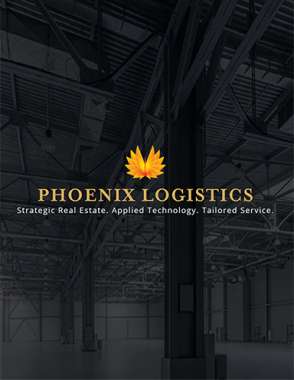Building Material Shortages Keep Stalling New Industrial Real Estate Inventory

Supply chain disruptions have driven the cost of non-residential building materials up by more than 23%, making many new projects cost-prohibitive even when builders can find a reliable supply of materials.
Building Material Shortages
U.S. warehouse vacancy remains at all-time lows, with estimates placing national vacancy below 4%.
Meanwhile, e-commerce sellers, traditional retailers, manufacturers, and other industry stakeholders are all competing for new space as it becomes available.
The natural response in this situation involves building more warehouses and factories, but that solution is easier said than done.
A variety of factors have created difficulties for builders as they attempt to access the materials they need.
Supply chain disruptions have driven the cost of non-residential building materials up by more than 23%, making many new projects cost-prohibitive even when builders can find a reliable supply of materials.
As industrial real estate stakeholders seek to close the gap between supply and demand in 2022, building material shortages will play a major role in their ability to do so.
Where Have All the Building Materials Gone?
As with many other areas of the supply chain, building materials have experienced a perfect storm of disruptive factors.
Some of the most notable events include:
- U.S./China trade war. As trade tensions between the U.S. and China continuously escalated in 2018-19, builders got caught in the crossfire. Tariffs were levied on hundreds of building material imports, including steel and aluminum, making it difficult for architects and contractors to afford the materials needed for industrial facilities. Most of those tariffs remain in place even under the new presidential administration, which is contributing to the current price of building material imports.
- COVID-19. The pandemic further exacerbated challenges posed by the U.S/China trade war as demand for e-commerce goods skyrocketed, quickly pushing demand for warehouses and fulfillment centers to unexpected levels. Meanwhile, two years of port and factory closures around the world bogged down the supply chain and limited access to critical building materials. Recent estimates about supply chain disruptions predict these issues will last into 2023 at a minimum.
- Natural disasters. The unexpected freeze in Texas in 2021 had serious ramifications for building materials. This phenomenon had a severe impact on the supply chain for cement, paint, plastics, and numerous other building materials that those sectors are still trying to recover from. As the severity of wildfires and hurricanes continues to increase, these events will create additional challenges.
- Russia/Ukraine. Russia produces a significant percentage of copper and aluminum found on the global market. As such, sanctions placed on Russia in response to its invasion of Ukraine have further driven up the price of these critical building materials. The war’s impact on the global energy sector will also have a negative effect on the pricing and availability of building materials.
- Inflation. Though real estate is often considered a buffer for inflation, construction is not. General contractors operate on credit, which means they have to take out loans and put up money upfront to cover the cost of materials on a project. Inflated building material prices may cause many contractors and subcontractors to seek smaller jobs with more affordable upfront costs and lower financial risk - which is bad news for developers of larger facilities, such as industrial plants and warehouses.
- Labor shortages. Labor problems have created issues along the building materials supply chain, from factories to transportation and logistics providers. With more than 1 million manufacturing jobs expected to go unfilled by 2030, it’s unlikely that the building materials sector will experience relief from labor shortages any time soon. A shortage of 80,000 truck drivers in the U.S. further exacerbates this problem by limiting transportation capacity and making it more difficult to get finished materials from factories to construction sites.
Finding new industrial real estate in the current environment can prove exceptionally challenging. Working with an experienced industrial real estate firm can help to mitigate some of the obstacles facing lessees and buyers in today’s market.
About Phoenix Logistics
Strategic Real Estate. Applied Technology. Tailored Service. Creativity. Flexibility. These fundamentals reflect everything we do at Phoenix Logistics. We provide specialized support in locating and attaining the correct logistics solutions for every client we serve. Most logistic competitors work to win 3PL contracts, and then attempt to secure the real estate to support it. As an affiliate of giant industrial real estate firm Phoenix Investors, founded by Frank P. Crivello, we can quickly secure real estate solutions across its portfolio or leverage its market and financial strength to quickly source and acquire real estate to meet our client’s needs.
Article Topics
Phoenix Logistics News & Resources
4 Best Practices for Online Order Fulfillment In 2023 Is Industrial Real Estate Recession-Proof? 9 Tips for Offsetting Rising Parcel Rates Tips for Retaining Your Peak Season Temp Labor The Great Decoupling and What It Means for Industrial Real Estate How Does the Inflation Reduction Act Impact Industrial Real Estate? Not in My Backyard: Warehouse Edition More Phoenix LogisticsLatest in Warehouse|DC
Talking Supply Chain: Supply chain’s watchdog Ranking the World’s 10 Biggest Supply Chains The Top 10 Risks Facing Supply Chain Professionals Walmart’s Latest Service: Ultra Late-Night Delivery Dollar Tree’s Oklahoma Distribution Center Decimated by Tornado European Parliament Passes Law on Supply Chain Accountability Transforming Warehousing with AI: Five Key Reasons to Adopt Now More Warehouse|DC













